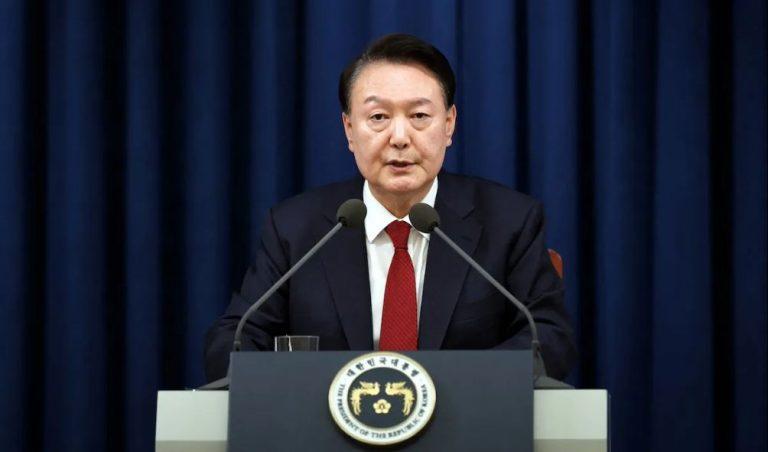Why it is so Hard to Arrest South Korea’s Impeached President
Over 100 police officers, armed with a warrant, failed to arrest suspended President Yoon Suk Yeol after a six-hour standoff outside his home. Yoon’s security team blocked the police using human barriers and vehicles, according to local reports.
This has been an unprecedented time in South Korean politics. Yoon’s brief and shocking martial law order was followed by an impeachment vote, a criminal investigation, and his refusal to face questioning. Earlier this week, a warrant was issued for his arrest.
Despite this, Yoon still has a loyal base of supporters, with thousands rallying outside his home on Friday to prevent his arrest. Yoon is now a disgraced leader, impeached and suspended, awaiting the constitutional court’s decision on his removal from office.
But why is it so hard for the police to arrest him?
Although Yoon no longer holds presidential powers, he is still entitled to a security detail. These officers played a key role in blocking the arrest.
Some experts suggest they acted out of loyalty to Yoon or due to a misunderstanding of their duties.
Since Yoon is suspended, the Presidential Security Service (PSS) should follow orders from acting President Choi Sang-mok, but the PSS either hasn’t received these orders or has ignored them.
Many believe the PSS is showing loyalty to Yoon, especially since its chief, Park Jong-joon, was appointed by Yoon. Park’s predecessor, Kim Yong-hyun, is under investigation for advising Yoon to impose martial law.
The easiest solution, experts say, is for acting President Choi to order the PSS to stand down. If Choi refuses, he may face impeachment. The political stalemate reflects deep divisions in South Korea, with some supporting Yoon’s actions and others opposing them.
ALSO READ:
- USA Offers Teaching Jobs for Kenyans to Teach Kiswahili – Apply by May 16
- Make April your winning month with AfroPari!
- Why Money Collected From Tourists Was Banked in Swiss Accounts – Gov’t
- Hanna Cheptumo Says Her Family Is Worth Ksh.420 Million During Cabinet Vetting
- Ruto’s Gender CS Pick Blames Femicide on ‘Greedy Women Chasing Money’ — Claims Education and Independence Could Stop the Killings
Most South Koreans agree that Yoon’s martial law order was wrong and that he should be held accountable, but they disagree on how. This uncertainty is fueling the current political crisis, leading to tense standoffs and even clashes with police. If police return with more officers, it could escalate into a dangerous situation.
The PSS is also heavily armed, so any escalation could lead to violence. Police are investigating the PSS director and his deputy for obstructing the arrest, which could lead to more charges.
The fallout from Yoon’s martial law order has also made things difficult for the Corruption Investigation Office (CIO), which is handling the investigation. The CIO, newly created after former president Park Geun-hye’s corruption scandal, is under pressure as they race against time to arrest Yoon before the current warrant expires on January 6.
If they fail, they may try again, but the growing number of supporters could make the weekend a challenging time for the authorities. South Korea is now in uncharted territory, and the political uncertainty is likely to continue.
Why it is so Hard to Arrest South Korea’s Impeached President
